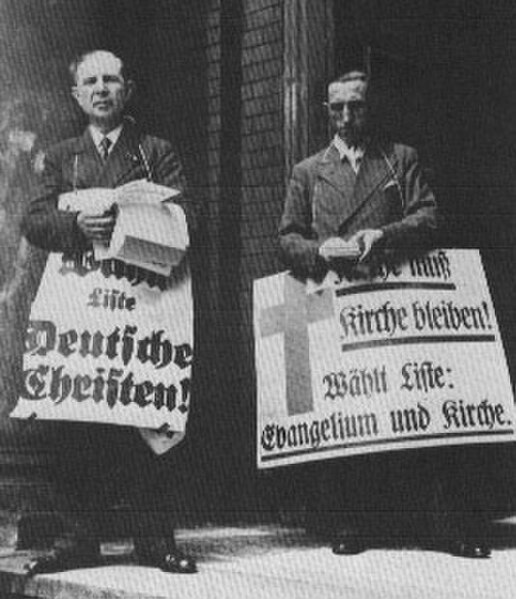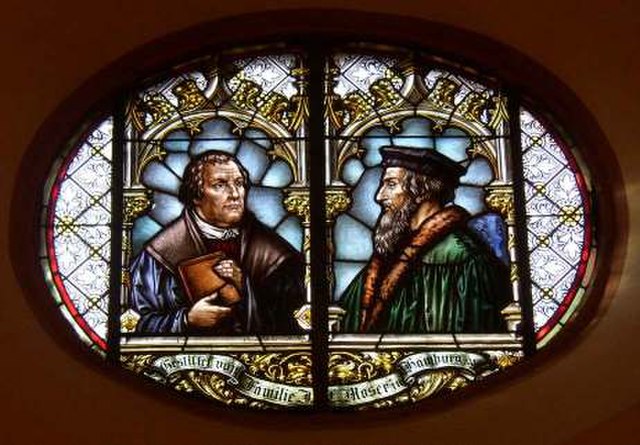Protestant Church in Germany
The Protestant Church in Germany, formerly known in English as the Evangelical Church in Germany, is a federation of twenty Lutheran, Reformed, and United Protestant regional Churches in Germany, collectively encompassing the vast majority of the country's Protestants. In 2022, the EKD had a membership of 19,153,000 members, or 22.7% of the German population. It constitutes one of the largest Protestant bodies in the world. Church offices managing the federation are located in Herrenhausen, Hanover, Lower Saxony. Many of its members consider themselves Lutherans.
Front page of the Peace of Augsburg, which laid the legal groundwork for two co-existing religious confessions (Catholicism and Lutheranism) in the German-speaking states of the Holy Roman Empire.
Synodal elections 1933: German Christians and Confessing Church campaigners in Berlin.
EKD church office in Hanover, Lower Saxony, Germany.
EKD's internal organization.
United and uniting churches
A united church, also called a uniting church, is a denomination formed from the merger or other form of church union of two or more different Protestant Christian denominations, a number of which come from separate and distinct denominational orientations or traditions. Multi-denominationalism, or a multi-denominational church or organization, is a congregation or organization that is affiliated with two or more Christian denominations, whether they be part of the same tradition or from separate and distinct traditions.
Glass window in the town church of Wiesloch (Stadtkirche Wiesloch) with Martin Luther and John Calvin commemorating the 1821 union of Lutheran and Reformed churches in the Grand Duchy of Baden.
Unionskirche in Idstein held by the Protestant Church in Hesse and Nassau. It commemorates the union of Lutheran and Reformed Protestants in the Duchy of Nassau in August 1817, the first of its kind and a month before the Prussian Union in September of the same year.






